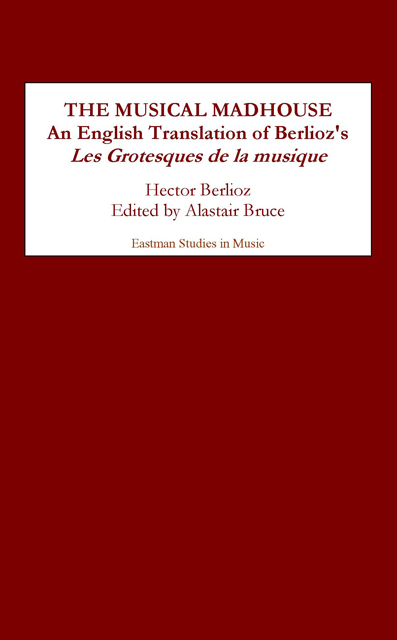Nelson’s bravery
Published online by Cambridge University Press: 21 March 2023
Summary
There is a country next to our own where music is really loved and respected, and as a result people wouldn’t think of listening to a concert or an opera performance that went on too long. In that country an evening of music beginning at half-past six has to be over by nine o’clock, or half-past nine at the latest, for at eleven o’clock everyone goes to sleep.
Here too everyone is asleep at eleven, but the music isn’t over. To obtain financial success, it’s absolutely imperative for our composers to write those great mongrels of operas which go on barking from seven o’clock until midnight and sometimes even longer. People like going to them to sleep, to test their endurance, to build castles in Spain, lulled by the unceasing sound of cascading cavatinas, until some unexpected occurrence brings them back to reality, such as the claque forgetting to applaud; then they wake up with a start.
This tendency to debase music to serve ignoble ends, such as lulling the public to sleep in the theatre, accompanying the conversation in a salon, aiding digestion during banquets, or amusing children of all ages, is the surest sign of a barbarous nation. In this respect we in France are pretty lacking in civilisation, and our taste for art in general is very much like that of one of our kings, who was asked if he liked music and replied goodnaturedly: “Well, I’m not afraid of it!” I’m not so brave as that king, and in all humility I confess that music often strikes terror into me. But even if, like Nelson, I tremble on the brink of battle, nonetheless, whatever you may think, I too am always at my post in the hour of danger, and I shall be found dead one fine evening in the sixth act of some opera about Trafalgar.
- Type
- Chapter
- Information
- The Musical MadhouseAn English Translation of Berlioz's <i>Les Grotesques de la musique</i>, pp. 134 - 135Publisher: Boydell & BrewerPrint publication year: 2003

